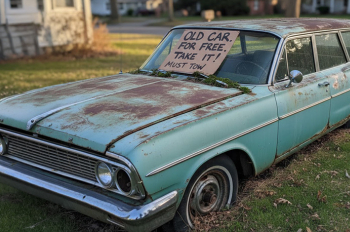
An organization that provides off-campus religious education to public school students during the day is reporting record enrollment for the 2025-26 school year.
In a statement provided to The Christian Post, LifeWise Academy announced that, in the 2025-26 school year, nearly 100,000 students will attend Bible-based character education during the school day under programs that allow for released time for students to obtain religious education off-campus.
LifeWise Academy, which offers such instruction to students, characterized this year’s enrollment as the highest in the organization’s history.
A fact sheet compiled by LifeWise Academy shows that 44,438 students were enrolled in the program last year. As explained on its donation page, LifeWise seeks to make its program available for all 50 million public school students.
In an interview with CP, LifeWise Academy CEO Joel Penton said the organization has been able to grow “thanks to the homegrown support of communities throughout America.”
“When a community collects 50 signatures saying they’d like to start a local LifeWise program, we work with them to bring it to fruition. Our staff will help them work with school districts, develop plans and launch the program,” he added. “As we’ve grown, so too has funding, ranging from small dollar donors to large nonprofits that see the tremendous impact that LifeWise has on children's emotional, academic and spiritual growth,” he added.
Penton attributed the surge in enrollment at LifeWise Academy to parents learning more about the program through “word of mouth, seeing how it works in neighboring communities and states or hearing about it through the media.”
“Many states are also responding to the demand by passing released time religious instruction laws, which make Bible-based education more accessible to parents,” he added.
In his earlier statement provided to CP, he said, “Students who receive religious instruction are more equipped to navigate today’s challenges. Parents and teachers tell us that students’ behavior improves and that they’re more engaged both inside and outside the classroom.”
Additional statistics shared by LifeWise Academy reveal that “LifeWise will serve students in more than 1,100 schools, nearly double the amount from the previous school year” and that the number of states where LifeWise Academy will provide its off-campus religious instruction has increased from 27 to 34.
“Every new program launched means more students hearing timeless truths, developing strong moral character, and building a foundation that will guide them for the rest of their lives,” Penton said. “Together, with the communities we serve, we’re making a real impact.”
As states such as Oklahoma have sought to provide options for students to attend off-campus religious instruction during the day, LifeWise Academy has insisted that the arrangement does not run afoul of the First Amendment to the United States Constitution.
In the 1952 U.S. Supreme Court decisionZorach v. Clauson, the justices ruled that there was “no constitutional requirement which makes it necessary for government to be hostile to religion and to throw its weight against efforts to widen the effective scope of religious influence.”
“When the state encourages religious instruction or cooperates with religious authorities by adjusting the schedule of public events to sectarian needs, it follows the best of our traditions,” the opinion stated. “To hold that it may not would be to find in the Constitution a requirement that the government show a callous indifference to religious groups.”
Penton also pushed back on the idea that students attending LifeWise Academy causes a disruption to the school day: “LifeWise programs typically take place during the lunch hour or elective time. We provide transportation so there’s no disruption to the school day. It’s a great option for busy families who are often juggling multiple activities, jobs and schedules.”
A poll of 1,000 registered voters conducted by RMG Research on behalf of LifeWise Academy from Feb. 25-26 found widespread support for programs allowing students to obtain religious instruction during the school day. Seventy-eight percent of respondents said they favored “teaching moral and character education to public school students,” while 13% opposed.
Similarly, 67% of those surveyed answered in the affirmative when asked if they wanted to see public school students have access to “Bible-based character education available for public school students.” The survey had a margin of error of +/-3.1 percentage points.
Originally published by The Christian Post






